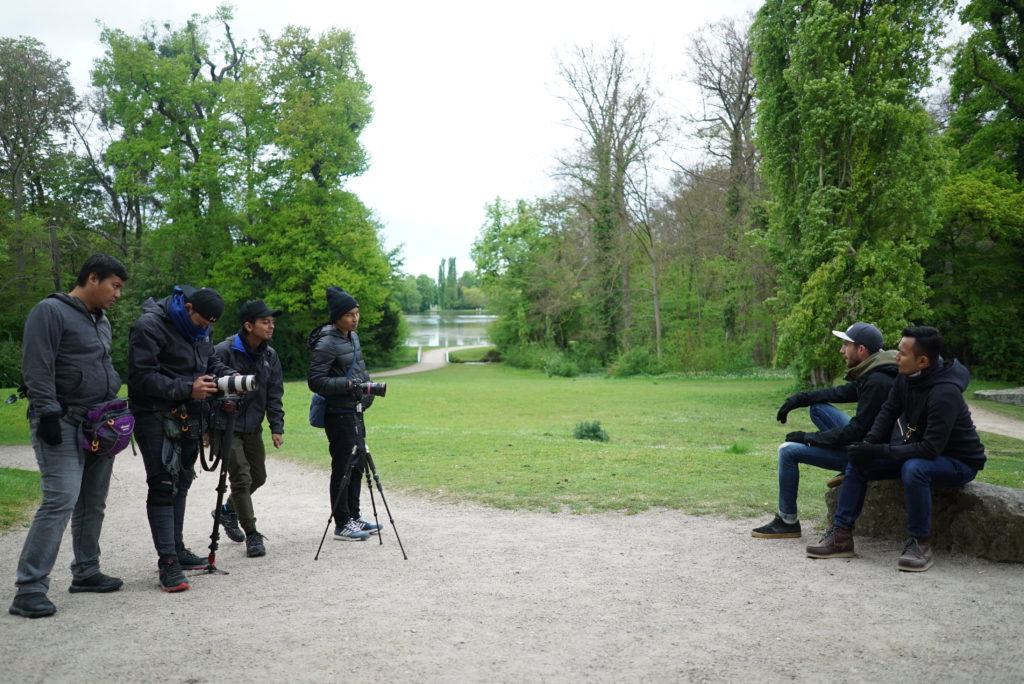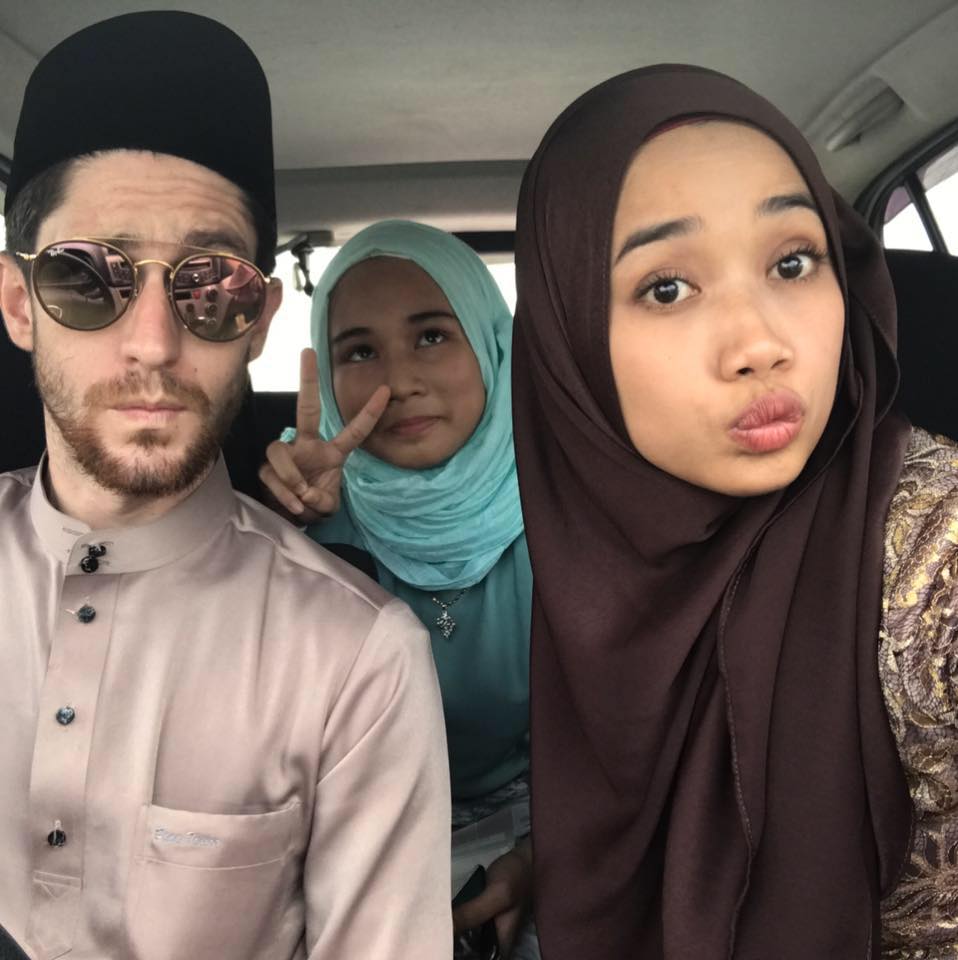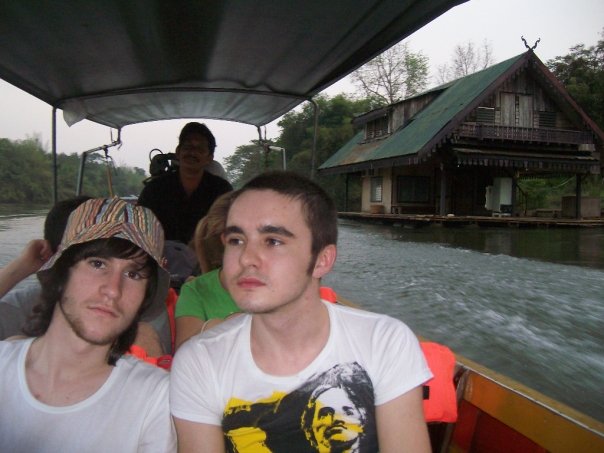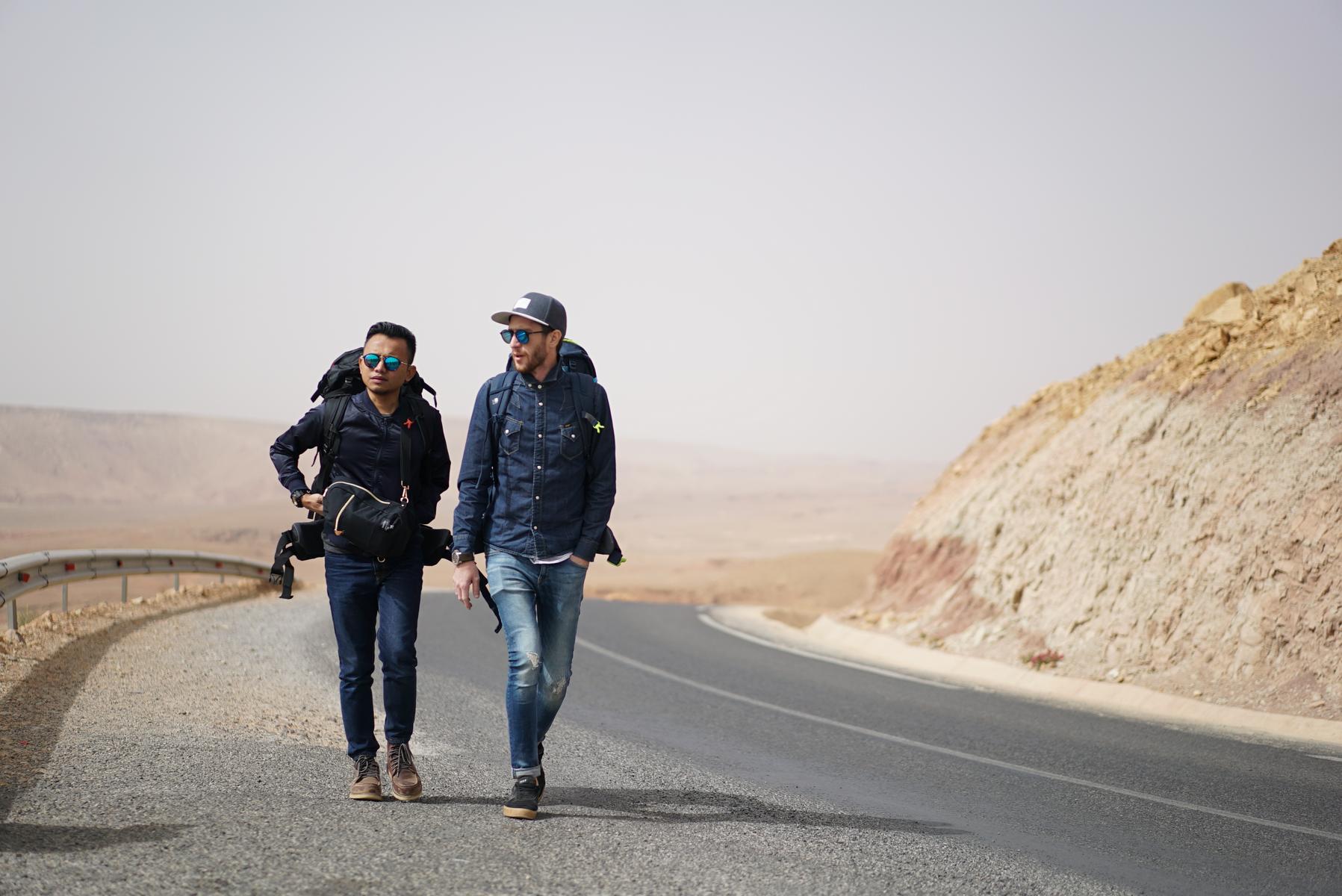Oasis and lager-loving teenagers from England’s West Country generally don’t grow up to become TV stars in Malaysia.
There are good reasons for this. Perfectly sound reasons.
And yet “Mat Dan,” aka Mohammed Kareef Daniel Abdullah, aka Daniel Tyler, is just that — a TV star in Malaysia. Ask him how it came to be and at least part of him remains a bit disbelieving.
“I didn’t even know where Malaysia was on a map,” he admitted from his Kuala Lumpur apartment recently, a few hours after returning from a racing event he’d emceed.
Growing up in Cheltenham, a town of about 120,000 in the heart of the English Cotswolds, Mat Dan — who now boasts 730,000 followers on Instagram — had a fairly typical, comfortable upbringing.
Showing an early talent for cricket, particularly the rare art of left-arm wrist spin, he was representing his county of Gloucestershire by his early teens and dreamed of one day becoming a professional.
But as is so often the case with professional sports dreams, by 15, they were largely dashed, and he was spending most of his time working at a clothing shop and/or partying. After dropping out of Sixth Form, he decided to join four friends* on a trip around Southeast Asia in 2008.
It was a trip that would change the course of his life. He’d barely touched back down in the UK before he was plotting his return.
New beginnings
A bit more than a year later, he was living on tiny Pulau Kapas off Malaysia’s eastern coast, an island further from the beaten backpacker track, one he felt had more of a community feel than the Thai islands he’d been traveling with his friends.
He’d soon built his own house, was running a campsite, and — key to this tale — began picking up the native dialect, Terengganu. Not that he realized it.
“I never really knew I was learning a local dialect because I was basically the only white guy around there, and I couldn’t expect all these locals to speak English just because I was there,” he explained.
“In the early days, I didn’t have a clue what I was saying. People were just talking to me and I was just nodding along. I had no idea what they were saying.”
(Ed: Not how Mat Dan learned the Terengganu dialect. At least not exactly.)
It was on a trip to Kuala Lumpur that he finally realized the language he’d spent the past couple of years learning wasn’t standard bahasa Malay at all.
“I started speaking the [Terengganu] dialect and people just looked at me like ‘what?’” he recalled with a laugh.
Back on Pulau Kapas, Mat Dan was already slowly becoming something of a celebrity, with locals regularly asking him to pose with their babies in photos. He was also on good terms with the island’s officials, despite once finding himself rounded up with a group of foreigners as part of a crackdown on backpackers working illegally.
Down at the immigration office, however, the chief investigator asked him to help out with translation.
“So now I’m like: ‘Right, you want me to act as a translator for you?’ Go on then,” he said.
‘Mat Dan mania’ is born
Those small-scale interactions were only a prelude. His life wouldn’t change in a significant way until the day a student from the capital secretly recorded him chatting in Terengganu with students at his campsite and uploaded it to YouTube. Within months, it had racked up hundreds of thousands of views from intrigued and perplexed members of the public.
Over the next two years, he began promoting local events and even starred in a couple of small commercials. Then, a producer from Astro — a Malaysian pay TV service — came calling.

It took some persistence, but Ahmad Safuan Abd Rashid, now CEO of his own production outfit, Koya TV, eventually secured a meeting.
“I was interested in Mat Dan [because] he was speaking [perfectly] like the locals in Terengganu, but he was a little shy when dealing with the camera,” Abd Rashid remembered, adding that it wasn’t simply the language that sold him.
“Many white guys can speak Malay very well, but I can say he is a very unique person and has the character for TV programs I was looking [for].”
Out of their initial meeting, the primetime travel series Haramain Backpackers – Trans Siberian was born. Within months, Mat Dan had upped sticks and was traveling the world.
By the time he returned in 2016, the show was already airing and Mat Dan was suddenly something of a household name, a new reality that had its ups and downs, he says.
“It had already got quite hectic, the ‘Mat Dan mania,’” he said. “I like it and I don’t like it. I need it for my line of work, so I’m reliant on having fans, but it can be a bit tiring always having to put a smile on and take pictures with people.
“I went for breakfast this morning and out of about 10 tables, I think seven called me over,” he said. “But you’ve always got to put a smile on your face.”
The smile, however, is paying off. Since Backpackers, things have snowballed: acting roles, appearances in ad campaigns and hosting his own cooking show — “I don’t know how to cook,” he sheepishly volunteers.
In February, he was surprised on live TV by then-Deputy Prime Minister Ahmad Zahid Hamidi, who granted him permanent residency, a process that is now being followed up with Mahathir Bin Mohamad’s new government.
Deeper changes
The narrative — white guy gains fame in Asian country due to novel language skills — isn’t lost on Mat Dan. But like his producer, he honestly believes the connection he’s made with his audience represents something deeper.
“There are a lot of people around who can speak the language better than me, but I think what makes me stand out is that I never [focused primarily on learning] the language — I was rubbish at learning languages — I learned how to be Malay,” he said.
“The language was kind of a side effect of that. I learned all the mannerisms and the whole way of life, and then the language kind of came along with that.”
Another, more personal, change since settling in Malaysia has been his conversion to Islam. Though never religious growing up — he identifies a primary school nativity play and a relative’s funeral as his only church visits — he was introduced to Islam by friends on Pulau Kapas and slowly began to find solace in the faith.
“It gave me somewhere to be, and it kind of showed me the right kind of track. Not to say I was losing it or whatever, but I perhaps wasn’t leading the best of lives,” he said.

“Me and my friends around here… the whole Islamic way is to look out for each other, so you’ve always got somebody there if you’re in trouble. It’s changed my whole way of thinking. It’s not all about us.”
He was initially anxious to tell his parents in Cheltenham of his plans to convert, but both were very supportive. In contrast, he has experienced awkward moments when faced with the attitudes of some hometown friends.
“There was a point I was back, year before last, and I was round a mate’s house and something came up on the news and, I can’t remember who it was, [but he] just said: ‘fucking Muslims.’
“They’d realized what they’d done. I just ignored it and made out I couldn’t hear what was said, but I could see that backlash,” he recalled.
“I didn’t take offense to it. I can’t blame them, because it’s what they get in the news every day, but it did make me think.
“They’re all still my mates,” he added. “There’s still an unspoken brotherhood there.”

That said, his initial trip home only served to underscore the ways living abroad had changed him.
“I really do believe in reverse culture shock. When you leave your hometown which you’ve been in for 19, 20 years, you go out and see the world … you come back and you’re a little lost for a while.”
Malaysia, it seemed, was truly starting to feel like home.
Now settled down with a wife, Nurnadifa, and 3-month-old son, Zayne, Mat Dan recognizes that his time in front of the camera likely won’t last forever and envisions parlaying what he’s learning into a production company of his own some day.
One pet idea: a Malay version of Brit home makeover show DIY SOS aimed specifically at helping the disadvantaged.
For now, though, he’ll keep riding the wave that is “Mat Dan mania,” each day absorbing a bit more Malay culture, each day feeling a little more like he’s found where he belongs.
“It’s my whole way of thinking. I dream in Malay, I count in Malay. If I was to fall over and say ‘Oh fuck,’ I’d say it in Malay. It’s my second language, but it’s slowly become my first,” he said.
“I learned the whole shabang.”
*The author was one of the friends who accompanied Mat Dan on his first trip to Asia. He returned as well, becoming a journalist. He is, however, still awaiting his own modest level of SE Asia stardom.



Reader Interactions